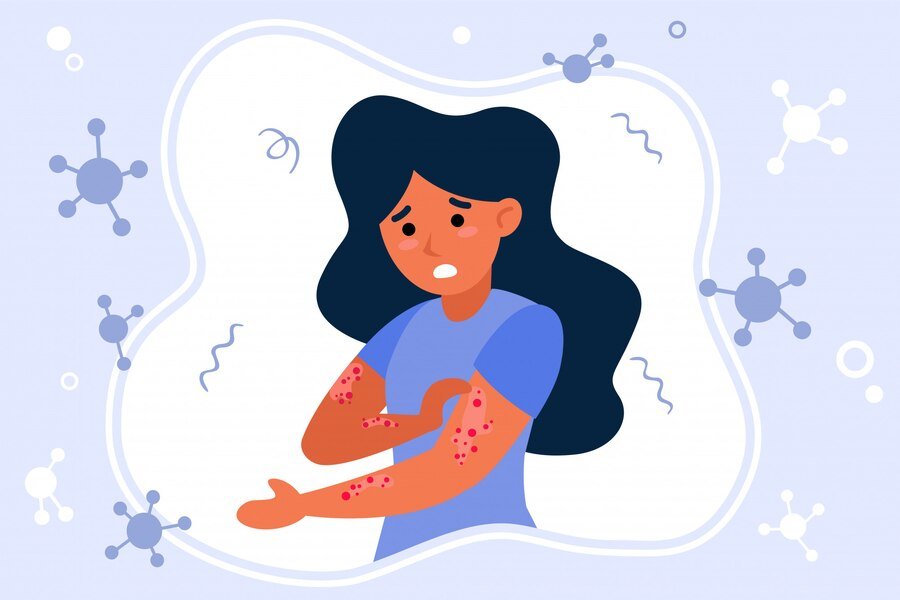Psoriasis is a chronic, autoimmune skin condition that causes itchiness and discomfort, mostly seen on the knees, elbows, trunk, and scalp. It causes thick, scaly areas on the skin. This is not a contagious skin disease.
Psoriasis is a long-term skin condition that may flare up due to a couple of reasons, but psoriasis treatment is available and can help manage the symptoms.
WHAT CAUSES PSORAISIS?
This is a result of an overreactive immune system which leads to inflammation in the skin. Research has shown that there is a link to both genetics and triggers in the environment that can cause psoriasis to act up.
TYPES OF PSORIASIS
Plaque Psoriasis
Plaque psoriasis is the most common type of psoriasis. This causes dry, scaly skin.
Inverse Psoriasis
This kind appears in the folds of the skin. It causes thin skin plaques without scales.
Guttate Psoriasis
This shows up after a streptococcal infection. It appears as little, red, drop-shaped scaly spots that typically can be seen in children and young adults.
Pustular Psoriasis
This type of psoriasis involves small, pus-filled bumps on top of skin plaques.
Erythrodermic Psoriasis
This is a severe type of psoriasis that affects more than 90% of your skin. It causes extensive skin discoloration and shedding of the skin.
Nail psoriasis
This causes changes in the fingernails and toenails, followed by skin discoloration and dents in the nail.
SYMPTOMS OF PSORIASIS
- Skin plaques or a rash
- Itchy skin
- Cracked, dry skin
- Skin pain
- Brittle, rough, cracked nails
- Joint pain
HOW TO PREVENT IT?
Depending on the type of psoriasis, treatment may be prescribed to you by your dermatologist. This may include ointment daily and seasonal care tips, and hygiene care.


